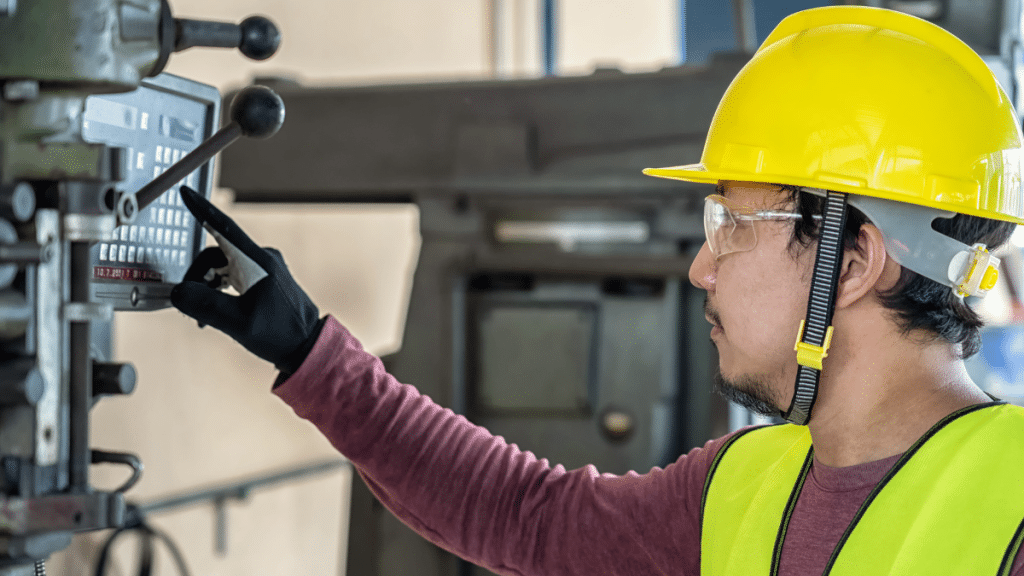When a production line grinds to a halt, the entire day can unravel. Orders fall behind, team morale dips, and the pressure builds fast. It’s not just the cost of the repair—it’s the ripple effect that eats away at your time, your output, and your bottom line. And here’s the kicker: a lot of these breakdowns don’t need to happen in the first place.
Across the industry, manufacturers are starting to rethink how they handle equipment maintenance. They’re stepping back, not just to put out fires, but to ask a smarter question: What keeps causing these fires in the first place? The answer? It’s often a mix of reactive thinking, stretched crews, and letting small issues slide until they grow teeth.
Let’s look at what’s really behind repeat machine failure—and what the most efficient shops are doing differently.
The Hidden Cost Of “Run It ‘Til It Breaks”
There’s a culture in manufacturing that says, “If it’s still running, it’s fine.” That mindset is everywhere, especially in shops where margins are tight and the schedule’s already packed. But waiting for something to fail before addressing it can quietly bleed a business dry.
That’s because every unplanned breakdown brings more than just a repair bill. There’s the cost of lost labor while a line sits idle. There’s the overnight shipping for rush parts. There’s overtime pay when techs have to work late to get you back up and running. And worst of all? There’s the hit to your reputation when you can’t deliver on time.
Smart owners are shifting toward prevention, not just reaction. They’re looking at maintenance as an investment instead of a chore. And the returns are starting to show.
Investing In The Right Repairs Before It’s Too Late
Not all repair work is created equal. Swapping out a worn belt is one thing—replacing an entire hydraulic unit because it got pushed too far is another. Shops that build long-term success learn how to tell the difference early.
This is where the question becomes less about if you should repair, and more about how and when. Preventive service doesn’t just keep machines running—it protects your profits. And as more business owners start asking “how much should heavy equipment repair cost?”, the conversation changes.
It’s not just a budget line anymore. It’s a strategy. A well-timed repair might cost a few hundred bucks. A breakdown in the middle of a large order? That can cost thousands. The most forward-thinking shops are building repair schedules into their production calendars. They’re tracking machine health like they track output. And they’re treating repair techs not as emergency responders, but as business partners.
Training Workers To Spot Trouble Before It Starts
Even the best machines send signals when something’s off. A little extra vibration. A strange noise. A small drop in speed or output. But when crews are racing through shifts or stretched thin, these early warnings slip through the cracks.
That’s why training your frontline workers to spot issues early is one of the smartest moves a business can make. This isn’t about turning every line worker into a mechanic—it’s about helping them understand what “normal” looks like, and what’s worth flagging.
The payoff is huge. A trained team means more eyes on the floor and fewer surprises. It also creates a stronger safety net, where problems get reported before they become disasters. That one extra check on a Friday afternoon might mean the difference between a smooth Monday and an emergency call at 6 a.m.
And here’s the other upside: teams who feel trusted to help keep things running take more pride in their work. Ownership breeds accountability—and accountability leads to fewer breakdowns.
Small Tech Upgrades That Pay You Back Fast
You don’t need a full digital transformation to get ahead of equipment issues. Some of the most impactful changes come from simple tools: sensor tags, mobile inspection checklists, automated maintenance reminders. These aren’t flashy—just effective.
Adding tech to your workflow should feel like adding a helper, not another job. It’s about taking guesswork off your plate. Instead of wondering when a press was last serviced, you’ll get a ping when it’s time. Instead of digging through logbooks, you’ll see patterns pop up automatically.
These small upgrades are especially useful for boosting manufacturing efficiency. When machines run smoother, so does everything else. Orders move faster. Downtime shrinks. And you stop relying on memory or sticky notes to keep your business from falling behind.
There’s real power in being able to look at your floor and know, with confidence, that everything’s on track—not because you got lucky, but because you set it up that way.
Why Most Shops Wait Too Long—And How To Be The One That Doesn’t
The biggest barrier to fixing machine problems early isn’t the cost. It’s the mindset. It’s easy to say “we’ll deal with it next quarter” or “we’ll schedule that later.” But when later finally shows up, it’s often wearing steel-toed boots and holding a repair bill.
The shops that stay ahead build better habits. They create routines. They stop trusting luck and start trusting data. They take a few hours a month to walk the floor, listen to their teams, and look at what their equipment is telling them.
You don’t need a big budget to make this shift. You just need to stop waiting for things to go wrong.
Final Thought
If your machines are breaking down more often than they should, it’s not just bad luck—it’s a sign. The good news? You can change the story. Start small. Schedule that one overdue checkup. Train your team to flag the weird sounds. Put repair on the calendar before it puts you on the back foot. Because in the world of manufacturing, the smartest move you can make is to stop reacting—and start preventing.
